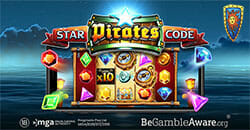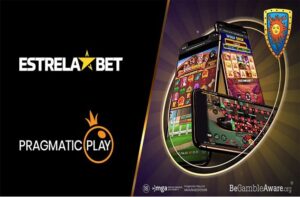By MaxD Feb 20, 2017
Well we’ve been back for a week now from this year’s ICE + LAC conference in London and all in all I’d have to say it was a pretty good trip. No doubt you’ll have read Bryan’s London Trip 2017 so you’ll know the bulk of the story in terms of what we did, saw and ate. I haven’t got lot to add so this one will be reasonably brief.
First things first: the ICE and LAC shows were bigger than ever this year and if you’re into the glitsy stands and all that then you would have had more than enough to fill your boots. Personally I go for two reasons: firstly to get some face time with specific people in the industry who can (hopefully) work with us to improve our Player ArBitration (PAB) process and secondly to keep Bryan company for a few days. Needless to say the latter is — and was! — easily accomplished. ‘Nuff said on that.
The primary reason for me being at the London show(s) is to talk to casino people to either break the deadlock on PABs that have gone sour or establish communications for resolving furture issues. In that respect this year’s excursion was a good, albeit modest, success with a (possible) cherry on top that we can’t really talk about just yet.
We did have a good discussion with Bwin/SportingBet that will hopefully allow us to be much more effective as an arbitrator for player complaints related to those properties. If things go well this could end years of “talk to the hand” silence from these guys that I for one will be happy to see the end of. Fingers crossed.
The other big “win” for us was talking to IBAS — by far the largest gaming dispute arbitrator in the business — and being well impressed by them, their level of professionalism, and the possibilities for us to work together more effectively when it comes to UK complaints where the player has named us as their representative. This had happened a couple times in the past year and there is now good reason to believe that that process will run smoother for all parties in the future.
On the regulator side of things the scene has changed a bit since this time last year. Kahnawake has now fully implemented their withdrawal from licensing US-facing operators which meant that they said “adios” to about 25% of their licensees. They’re convinced that this was the right thing to have done and are committed to moving forward. As seasoned Casinomeister readers will know we’ve been big fans of Kahnawake in recent years and that certainly hasn’t changed.
Elsewhere: Malta continues to make good progress and I’m happy to see them becoming the most progressive licensor in Europe. Curacao on the other hand seems determined to become the new Costa Rica in terms of being little more than an issuer of business licences. For years they had made noises about being a real regulator but cases like the Curaçao eGaming/Cyberluck/License 1668/JAZ this past year pretty much proves those claims weren’t worth the oxygen they wasted on making them. Add to that that there are committed efforts to drag the Curacao licensor into court — by some of their own politicians no less — and it’s clear that Curacao licenses now mean very little. It’s only the good reputation and conduct of a few select operators that keep Curacao from being rated among the worst of the worst.
That said the big story this year amongst casinos, players and dispute arbitrators alike was that elephant-sized thorn in everyone’s side: Self-Exclusion (SE). Roughly 1/3 of the total cases received by arbitrators this past year have been SE-related and (at a guess) 50% or more of those are fraud related. It’s become a significant drain on everyone’s resources and a massive PITA. Even progressive regulators like the UKGC have been struggling with the SE problem — the infamous EveryMatrix cases being no small part of their agro — and the rumour is they’re about to overhaul their SE policy again very soon.
The only group with anything positive to say about SE issues is Kahnawake. They’ve got a clearly defined, straight-forward system in place and this year published detailed results from their process. I believe their SE program is second to none and in closing I’m going to quote from their 2016 Self-Exclusion Summary at some length. In my humble opinion other regulators would be very wise indeed to consider following Kahnawake’s good example:
If the request concerns a specific operator licensed by the Commission, the request will be forwarded to the appropriate operator to be implemented. Once the self-limitation or self-exclusion request has been implemented, the operator will notify the request or and the Commission with the date upon which implementation was completed.
If the self-exclusion request is in relation to all online gaming sites that are licensed by the Commission, a Comprehensive Self-Exclusion Directive signed by the Commission Chairman is emailed to all current licensees with a specific date and time by which all licensees must permanently exclude the requestor from accessing, depositing funds and from playing on any gaming system that is operated by the licensee and licensed by the Commission.
The Commission will contact the request or to confirm , in writing, the date and time at which their self-exclusion request was put into effect. Players are advised to notify the Commission immediately if any online gaming site licensed by the Commission does not respect the terms of a Comprehensive Self-Exclusion Directive.
Source: https://www.casinomeister.com/ice-lac-2017-commentary/
- 1998
- 2016
- advice
- All
- among
- Bit
- Boots
- business
- cases
- Casino
- Casinos
- chairman
- claims
- Column
- Commentary
- commission
- Communications
- company
- complaints
- Conference
- content
- continues
- costa rica
- Couple
- Court
- Curacao
- Current
- day
- department
- depositing
- DID
- Dispute
- Effective
- Europe
- Face
- Finally
- First
- Forward
- fraud
- funds
- future
- Games
- Gaming
- good
- great
- Group
- HTTPS
- i
- ICE
- implementation
- important
- improve
- industry
- issues
- IT
- Job
- Level
- licensed
- licenses
- Licensing
- London
- Making
- Malta
- management
- online
- Online Casino
- Online Gaming
- operators
- Opinion
- Other
- Overhaul
- Oxygen
- People
- player
- players
- Playing
- policy
- Positive
- Process
- Program
- progressive
- proves
- readers
- reasons
- Regulators
- RELATED
- Resources
- Results
- rules
- Run
- s
- Service
- Short
- Sites
- small
- So
- sold
- started
- success
- system
- talking
- The
- time
- top
- Uk
- us
- week
- West
- What
- WHO
- Work
- worth
- writer
- writing
- year
- years












